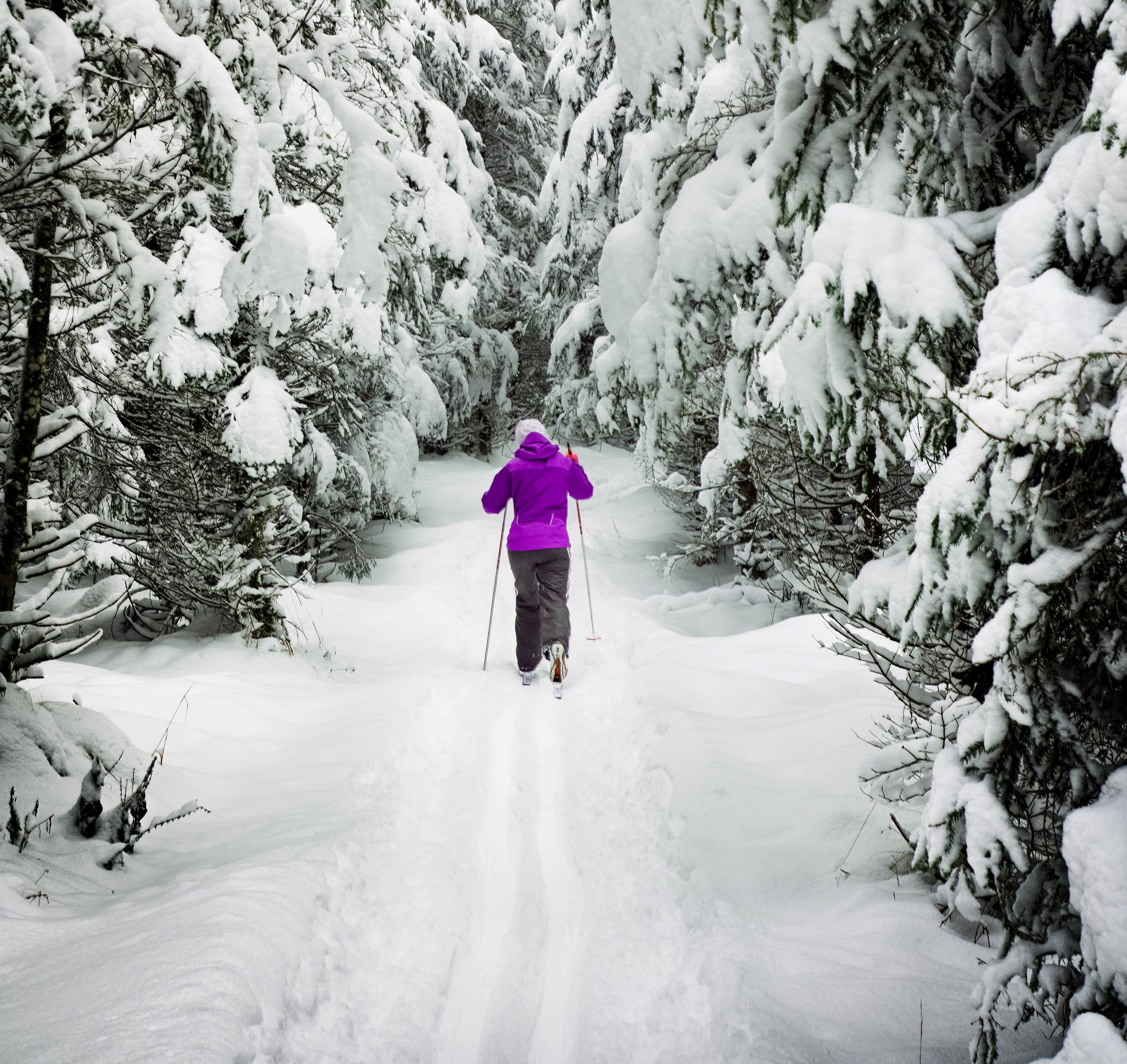
'The best piece of advice I can give is to be comfortable with your equipment and know what you are doing and what your limits are in the weight room.' - Adam Pojasok
Glen Sather Sports Medicine Clinic physiotherapist Nick MacLeod sits down with Edmonton Nordic Club cross-country skier and former clinic patient Adam Pojasok to get the most up-to-date information on common injuries, the best exercises for performance and how rehabilitation can help prevent and reduce down time.
Nick: What are the most common injuries from cross-country skiing?
Adam: The most common major injuries in cross-country skiing, at least from the competition/athlete side of things are torn hamstrings, compartment syndrome in the shin muscles, back strains/pulls, stress fractures, a variety of knee and ankle injuries and rotator cuff weakness or tears.
Nick: What are some recommended exercises to help improve skiing performance?
Adam: Some of the best exercises to help improve performance and cardiovascular fitness are:
• Your main lifting blocks should involve fairly heavy leg exercises, incorporating instability and balance challenges, for five to eight repetitions.
• The focus of upper body workouts should be on range of motion (especially shoulders and upper back) and muscular stamina, with many high repetition (15+) sets of pull ups, inverse pull ups, push ups, dips and modified skull crushers.
For me, as the season gets closer to competitions, I incorporate speed and agility elements, including plyometric exercises, cone drills and some reaction and coordination drills.
Nick: Do you have any advice for starting a cross-country skiing training regime?
Adam: The best piece of advice I can give is to be comfortable with your equipment and know what you are doing and what your limits are in the weight room. I know too many athletes that have ruined their whole ski seasons because they trained with equipment that fit poorly or they over-reached their skill set or strength while lifting weights.
Nick: My last question is, how do you think a rehabilitation team can help with performance, injury prevention and return-to-sport?
Adam: Good rehabilitation teams are vital in today's sport world, whether it's teaching correct form to prevent injury or making sure an athlete waits for an injury to fully heal before returning to activity, even when the athlete feels like they're good to go. However, I feel as though, especially in cross-country skiing, not enough coaches have the knowledge of a physiotherapist about how best to keep their athletes injury-free. When this is the case, the duty falls on the athlete to build their own injury prevention strategies-ones that usually end up being unsuccessful. The biggest role I think rehabilitation experts can provide is to provide coaches with the knowledge to be able to spot signs of fatigue and over work injuries, and only allow athletes into the weight room under supervision of certified instructors.
For more information about Glen Sather Clinic services, including physiotherapy for sports injuries, visit our website.
____________________________________________
Adam Pojasok is an Edmonton cross-country skier currently active with the Edmonton Nordic Club. He has been the Canadian Birkiebiener 31 km Champion (2018) and Alberta Cup overall Champion (2018), has had multiple Top 15 results at Canadian Nationals and multiple Alberta Cup wins and podiums, and has come in second at the Canadian Birkiebiener 31 km (2017) and third overall at the Alberta Cup (2017).
Nick MacLeod is a physiotherapist at the Glen Sather Sports Medicine Clinic with a special interest in knees. He completed both his Bachelor of Science in Biological Sciences and Master of Science in Physical Therapy degrees at the University of Alberta.